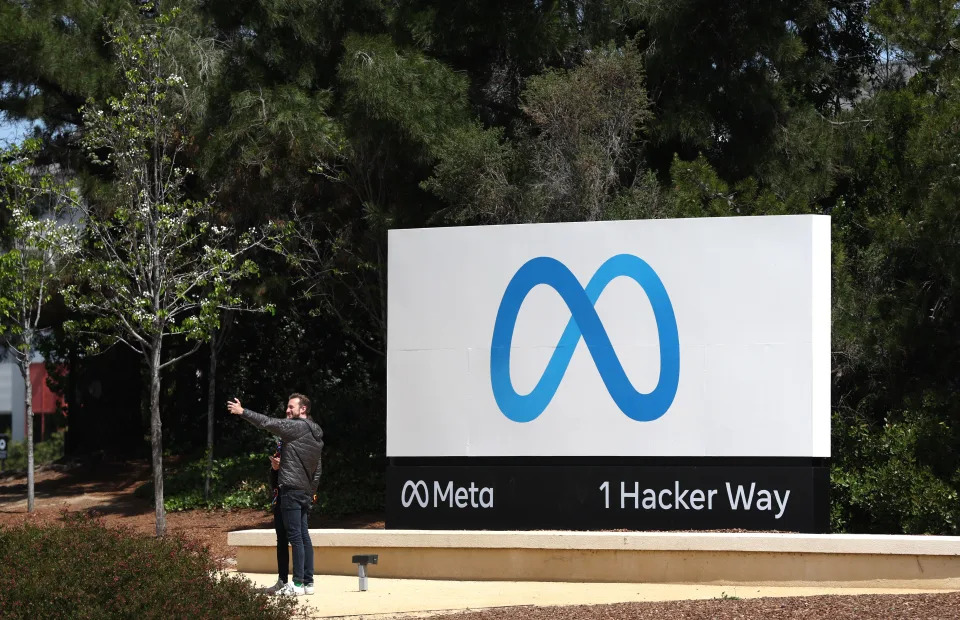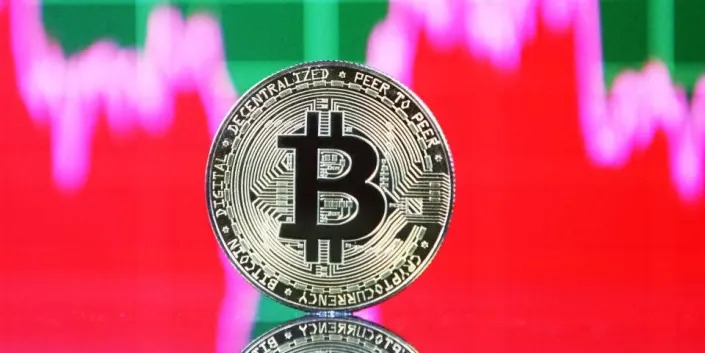The mood has changed at the headquarters of Meta Platforms (META) - Get Meta Platforms Inc. Report, parent of Facebook, Instagram and WhatsApp, in Menlo Park, Calif.
The atmosphere is beginning to resemble that currently found in many companies in America where the consequences of a looming recession are feared.
Don't miss the next big investment opportunity! Save on TheStreet Smarts during our Fourth of July Sale!
For months now, many economists have been anticipating a sharp downturn in the economy due to aggressive monetary policy by the Federal Reserve and central banks around the world to combat record price increases everywhere. The Russian war in Ukraine has further exacerbated the supply chain problems caused by the covid-19 pandemic.
This cocktail, experts say, will affect consumption. Households should, these experts explain, reduce their expenses for fear of a disappointing tomorrow and focus only on essential expenses.
'Worst Downturn'
Mark Zuckerberg, CEO of Meta, now seems to share this pessimistic view. During the traditional weekly Q&A session with company employees on June 30, he said he expected "one of the worst downturns that we've seen in recent history," according to an audio recording obtained by Reuters.
Consequently, Meta will accentuate its cost reduction policy. The firm only plans to hire between 6,000 and 7,000 new engineers in 2022, against an initial project of 10,000 new recruits, indicates Reuters. It is therefore a revision of 30% to 40%.
In May, a source told TheStreet that the social media giant was planning to halt or in some cases slow hiring for most mid-to-senior level positions. The goal was to revise priorities and align hiring targets with current market estimates and pacing, the source said.
"We regularly re-evaluate our talent pipeline according to our business needs and in light of the expense guidance given for this earnings period, we are slowing its growth accordingly," a Meta spokesperson told TheStreet in an emailed statement. "However, we will continue to grow our workforce to ensure we focus on long-term impact.”
At the time, this decision came just weeks after another cost-saving measure: the pause on hiring early-career engineers.
Russia Is a Problem for Sales
The company posted first-quarter revenues of $27.908 billion, up 6.6% year over year, nearly all of it coming from the new 'Family of Apps' division the company created last year, missing analysts estimates of a $28.2 billion tally. Ad revenues were up 6.1% to $27 billion.
But after suffering its first-ever decline in daily active users last quarter, Meta said the figures rose 4% from last year at 1.96 billion, just ahead of the Street consensus of 1.951 million, suggesting the social media group has been able to offset the market share gains of China-based TikTok with both its Facebook and Instagram apps.
The company had, however, warned that the Russian war in Ukraine would weigh on its sales. Facebook was banned in Russia after the firm publicly voiced its opposition to Russian intervention by taking strong action to limit Kremlin propaganda on its platforms.
Meta had 77,805 employees as of March 31, up 28.3% from March 31, 2021 when the company had 60,654 employees, according to a filing with the U.S. Securities and Exchange Commission (SEC).
Meta did not immediately respond to a request for comment.
Meta isn't the only tech giant looking to cut costs.
Electric vehicle maker Tesla (TSLA) - Get Tesla Inc. Report said in June that it would cut its workforce by around 3% in the coming months. Software giant Microsoft (MSFT) - Get Microsoft Corporation Report has also lowered the hiring targets it had initially set, while the e-commerce giant Amazon (AMZN) - Get Amazon.com Inc. Report is expected to reduce its initial hiring targets in the retail business, according to a leaked memo in May.
Meta cuts hiring plans as it prepares for
'serious times'
Mariella Moon
·Contributing Reporter
Fri, July 1, 2022

Justin Sullivan via Getty Images
In a weekly employee Q&A session, Meta CEO Mark Zuckerberg reportedly said the company is experiencing "one of the worst downturns [it has seen] in recent history." According to Reuters, the executive has revealed that Meta has slashed its target number for new engineers hires this year by about 30 percent. Meta previously said that it's slowing its hiring plans due to weak revenue forecasts, but now Zuckerberg has announced more details with exact figures. Apparently, from plans to hire 10,000 new engineers this year, Meta will only hire between 6,000 and 7,000.
Further, the CEO said that Meta is raising expectations on current employees and giving them more aggressive goals so that they can decide on their own if the company isn't for them. "[S]elf-selection is OK with me," he said. In a memo to employees, chief product officer Chris Cox has stressed that the company "is in serious times here and the headwinds are fierce." He also listed the company's six investment priorities for the second half of the year, starting with its metaverse initiatives Avatars and its virtual world Horizon Worlds.
According to the memo, published in full by The Verge, Meta is also aiming to monetize Reels as quickly as possible. Time spent on Reels has more than doubled around the world since last year, the memo reads, with 80 percent of that growth coming from Facebook. Cox called Reels, its short-form video format created as an answer to TikTok, a "bright point" for the company in the first half of 2022. Meta plans to continue improving the experience, including making changes to the home screen on Instagram and Facebook to incorporate the videos more natively.
-
In addition, Meta plans to focus on its AI initiatives, as well as on WhatsApp and Messenger in the second half of the year. It plans to test WhatApp communities before the feature launches around the world by the end of 2022. The company is also going to develop Instagram Creator channels and joinable chats, which are slated for rollout in the coming months.
Cox wrote in the memo:
"I have to underscore that we are in serious times here and the headwinds are fierce. We need to execute flawlessly in an environment of slower growth, where teams should not expect vast influxes of new engineers and budgets. We must prioritize more ruthlessly, be thoughtful about measuring and understanding what drives impact, invest in developer efficiency and velocity inside the company, and operate leaner, meaner, better exciting teams."
Tech companies continue to hit the breaks on hiring against the backdrop of a declining stock market and recession fears.
On June 30th, Meta's (META) founder and CEO Mark Zuckerberg said the social media giant would scale back hiring and warned of an economic downturn.
"If I had to bet, I'd say that this might be one of the worst downturns that we've seen in recent history," Zuckerberg told employees during a weekly Q&A session which was recorded and heard by Reuters.
Earlier in June, Tesla's CEO Elon Musk ordered a hiring pause worldwide, citing a “super bad feeling” about the economy.
JPMorgan's CEO Jamie Dimon also warned of an economic “hurricane" ahead as the Federal Reserve continues its process of normalizing interest rates.
Hiring pauses, rescinded offers, and layoffs accelerated last quarter as stocks in every sector of the S&P 500 declined. Communications Services and Technology were among the worst performing sectors, behind Consumer Discretionary. The S&P 500 closed out its biggest loss for the first half of the year since 1970.
Yahoo Finance is tracking how tech companies are responding to a bear stock market, and a slowing economy.
Meta (META)
Facebook's parent company plans to slash hiring plans for engineers by at least 30%, according to Reuters.
In late June, CEO Mark Zuckerberg told employees the company aims to hire between 6,000-7,000 engineers in 2022, down from an initial target closer to 10,000. Meta had confirmed it would limit its intake of new employees in May, but exact figures had not been reported. The social media giant had 77,805 employees worldwide as of March 31, 2022.




